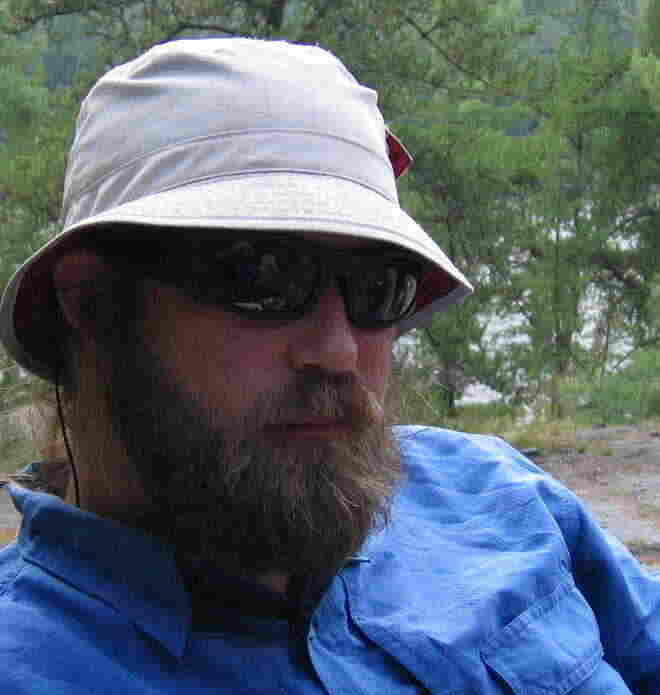If you drop a rock with a fossil in it and it hits the ground, will it prove anything?
I was sitting at the Happy Dog talking to a friend and I started on some drunken rant about people who think that evolution is an unproven theory or simply not true. What I said was a little stream-of-consciousness ditty that didn't make much sense and she asked me about it later. I actually had been thinking about it and am taking this opportunity to try and organize my thoughts into something coherent.
Somebody on Talk of The Nation: Science Friday, I think it was the host Ira Flatow, while discussing a play based on the Scopes Monkey Trial said that the majority of the people in the United States don’t think that evolution is correct. I always assumed that it is a vocal minority somewhere in the neighborhood of 10-15 percent, maybe as high as a quarter of the population, who hold that view. I don’t know where the information came from or how reliable it is, but it is a lot more people than I thought. Evolution is a process driven by genetics, and genetics is very well understood and established. The particulars of adaptation and speciation will always be argued over, but the underlying principles of evolutionary development cannot be denied.
Genetics is the mechanism by which evolution takes place and it is understood down to a molecular level. DNA and its role in producing proteins and reproducing itself are not completely understood, but the basic chemistry of the process is. Natural variations in the early strands of DNA that lead to some strands replicating more efficiently than others would obviously, simply, and inevitably lead to there being more of the strands of DNA that replicated better than the ones that didn’t. Even before there were viable organisms the process of evolution would have been at work through simple chemical variation. What made one DNA strand replicate better than another or what caused the variations may never be knowable, but different concentrations of chemicals essential to replication and protein synthesis coupled with something as simple as the effects of UV radiation on chemical bonds in DNA could account for the eventual development of these differences. Regardless, adaptation and evolution are processes that are ongoing and observable now, and can be followed backward in time for millions of years. It is much better understood than even something as universally accepted as a fact as gravity.
The underlying phenomenon and the mechanisms that drive gravity are unknown. The effects can be very accurately described with formulas that predict bizarre things like black holes, which were predicted, disbelieved for a while, and eventually discovered to be real. However, all that these formulas can do is describe the effects of gravity. How gravity works at a fundamental level, what the actual physical interactions between masses that appear to be attracted to each other are, is anybody’s guess. Nobody knows what space is and how matter within it affects it and what the interactions between different objects and the space around them are. There is a constant rate of acceleration associated with gravity and the force effect is inversely proportional to the square of the distance between the objects’ centers of mass, which sounds impressive (really those are very basic relationships discovered long ago) but actually tells you nothing about what is going on.
The analogy I like is shooting dice. You can do all kinds of fancy statistical analyses of what numbers come up to determine the results of throws and if you are careful enough you might even be able to find statistical anomalies related to things such as ware of the cloth on the table, oils and dirt on the dice from the thrower’s hands, humidity in the air, or anything else that might have a tiny yet measurable effect on the outcome of the shot. However, no matter how well you can describe the tendencies for the various outcomes of any given throw, or how accurately you can predict the results, even if you notice those tiny anomalies, it tells you nothing about the physical realities of holding dice, throwing them down a table, and bouncing them off a wall.
I know this point of view is offensive to many people. It relies on random chance and implies no purpose nor requires one, but I assure you that whatever there is still to be discover about the process of genetic adaptation and despite the vagaries and changing interpretations of the fossil record, the basics are not going to change and evolution is as real as gravity. I don’t need to see a rock I drop hit the ground to know it will, any more than I need to have been around for the last billion years to know that life evolved.

